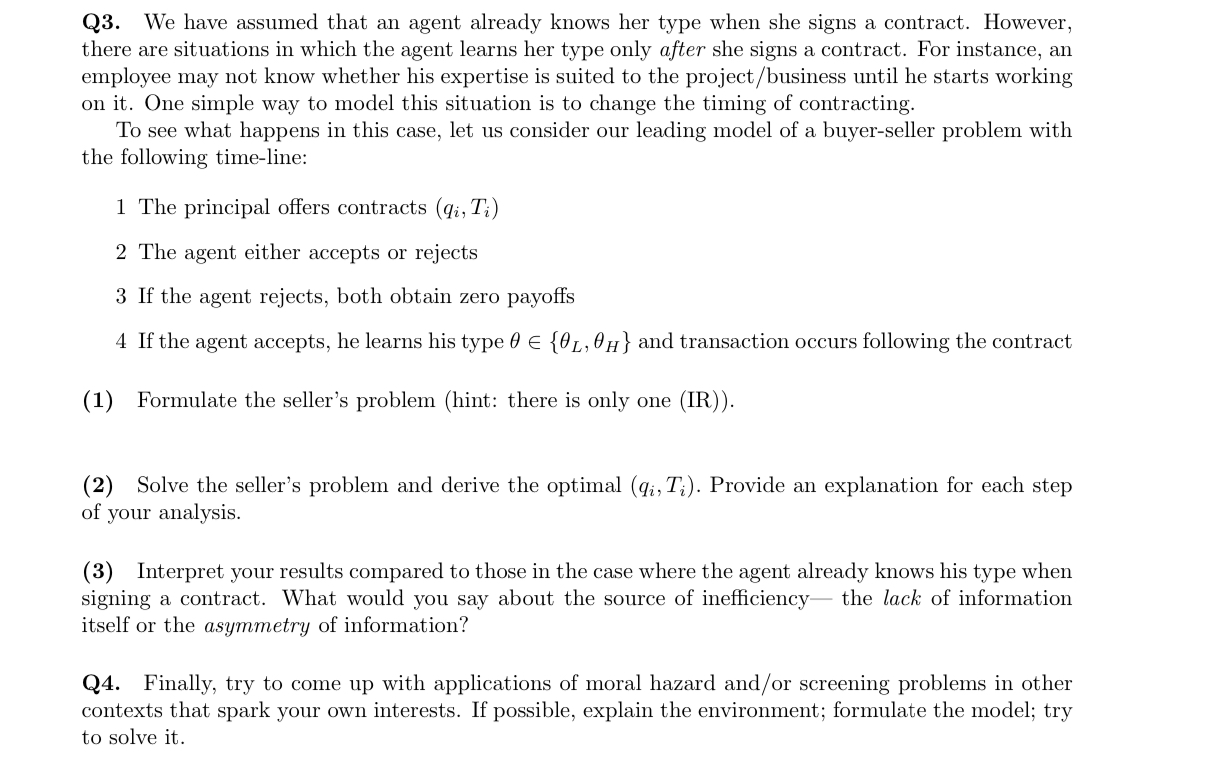(Solved): Q3. We have assumed that an agent already knows her type when she signs a contract. However, there a ...
Q3. We have assumed that an agent already knows her type when she signs a contract. However, there are situations in which the agent learns her type only after she signs a contract. For instance, an employee may not know whether his expertise is suited to the project/business until he starts working on it. One simple way to model this situation is to change the timing of contracting. To see what happens in this case, let us consider our leading model of a buyer-seller problem with the following time-line: 1 The principal offers contracts \( \left(q_{i}, T_{i}\right) \) 2 The agent either accepts or rejects 3 If the agent rejects, both obtain zero payoffs 4 If the agent accepts, he learns his type \( \theta \in\left\{\theta_{L}, \theta_{H}\right\} \) and transaction occurs following the contract (1) Formulate the seller's problem (hint: there is only one (IR)). (2) Solve the seller's problem and derive the optimal \( \left(q_{i}, T_{i}\right) \). Provide an explanation for each step of your analysis. (3) Interpret your results compared to those in the case where the agent already knows his type when signing a contract. What would you say about the source of inefficiency - the lack of information itself or the asymmetry of information? Q4. Finally, try to come up with applications of moral hazard and/or screening problems in other contexts that spark your own interests. If possible, explain the environment; formulate the model; try to solve it.
